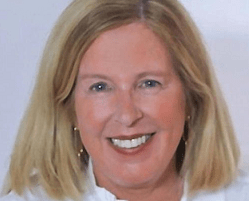Has Your Position on Social Media Changed During Harvey?
 Wendy Glavin, Founder and CEO of Wendy Glavin AgencyToday, social media is well-known throughout the world. In the year 2000, 100 million people had access to the internet but social media was a fad. Throughout the year, we’ve been hearing a lot about the negative effects of social media, including addiction, social isolation, and idealization.“The American Academy of Pediatrics has warned about the potential for negative effects of social media in young kids and teens, including cyber-bullying and "Facebook depression." But the same risks may be true for adults, across generations.” – Forbes, June 30, 2017: https://www.forbes.com/sites/alicegwalton/2017/06/30/a-run-down-of-social-medias-effects-on-our-mental-health/ - 7d07ba4a2e5aThen, there’s the issues of fake news, free speech, the public’s distrust of the news media, brands, institutions, and widespread concern about our democratic ideologies.But, during Hurricane Harvey social media has become a lifeline. “Hundreds of stranded Texas residents sought help on Sunday by posting on Facebook and Twitter. They tweeted their addresses to emergency officials, and organized rescue missions through Facebook groups. We have seen this kind of web-enabled emergency response in other countries before, but never in the United States on this scale.” CNN, August 28, 2017: https://money.cnn.com/2017/08/28/media/harvey-rescues-social-media-facebook-twitter/index.htmlHouston residents, police, local and national government officials, volunteers, broadcast and print media are using social media as their core means of communications. “And what’s fascinating is that this is not emergency services experts creating strategic systems to rescue people,” said Karen North, a professor of social media at the University of Southern California.The U.S. Coast Guard suggested people call Houston Command Center, instead of posting on social media. But, residents complain about busy signals, and being kept on-hold. North said, “This is evolving organically … Not only can people reach out to 911 but to friends and family elsewhere who can not only reach out to 911 but directly to rescuers in the location where the person needs help.” – Associated Press, August 28, 2017: https://nypost.com/2017/08/28/harvey-victims-are-using-social-media-when-911-fails/Like everything, there are pros and cons. But, the use of social networks is not going away and it’s expanded exponentially. It’s transformed how we interact, the way we do business, how we get our news, and other information, and has helped interconnect under-developed nations throughout the world, and more.Some of the disadvantages are bullying, hacking, scams, frauds, addiction, anxiety, depression, fake news, and more.Like a sword, social media cuts both ways. We decide how to use it. [author]About the Author: Wendy Glavin is Founder and CEO of Wendy Glavin Agency, based in New York City, offering marketing, public relations, and social media. Wendy is a 30-year veteran of corporate, agency, consulting, and small business ownership. Wendy has worked across a wide variety of B2B2C industry sectors, and is a published writer and guest speaker. Please contact her at:wendy@wendyglavin.com or via her website: https://wendyglavin.
Wendy Glavin, Founder and CEO of Wendy Glavin AgencyToday, social media is well-known throughout the world. In the year 2000, 100 million people had access to the internet but social media was a fad. Throughout the year, we’ve been hearing a lot about the negative effects of social media, including addiction, social isolation, and idealization.“The American Academy of Pediatrics has warned about the potential for negative effects of social media in young kids and teens, including cyber-bullying and "Facebook depression." But the same risks may be true for adults, across generations.” – Forbes, June 30, 2017: https://www.forbes.com/sites/alicegwalton/2017/06/30/a-run-down-of-social-medias-effects-on-our-mental-health/ - 7d07ba4a2e5aThen, there’s the issues of fake news, free speech, the public’s distrust of the news media, brands, institutions, and widespread concern about our democratic ideologies.But, during Hurricane Harvey social media has become a lifeline. “Hundreds of stranded Texas residents sought help on Sunday by posting on Facebook and Twitter. They tweeted their addresses to emergency officials, and organized rescue missions through Facebook groups. We have seen this kind of web-enabled emergency response in other countries before, but never in the United States on this scale.” CNN, August 28, 2017: https://money.cnn.com/2017/08/28/media/harvey-rescues-social-media-facebook-twitter/index.htmlHouston residents, police, local and national government officials, volunteers, broadcast and print media are using social media as their core means of communications. “And what’s fascinating is that this is not emergency services experts creating strategic systems to rescue people,” said Karen North, a professor of social media at the University of Southern California.The U.S. Coast Guard suggested people call Houston Command Center, instead of posting on social media. But, residents complain about busy signals, and being kept on-hold. North said, “This is evolving organically … Not only can people reach out to 911 but to friends and family elsewhere who can not only reach out to 911 but directly to rescuers in the location where the person needs help.” – Associated Press, August 28, 2017: https://nypost.com/2017/08/28/harvey-victims-are-using-social-media-when-911-fails/Like everything, there are pros and cons. But, the use of social networks is not going away and it’s expanded exponentially. It’s transformed how we interact, the way we do business, how we get our news, and other information, and has helped interconnect under-developed nations throughout the world, and more.Some of the disadvantages are bullying, hacking, scams, frauds, addiction, anxiety, depression, fake news, and more.Like a sword, social media cuts both ways. We decide how to use it. [author]About the Author: Wendy Glavin is Founder and CEO of Wendy Glavin Agency, based in New York City, offering marketing, public relations, and social media. Wendy is a 30-year veteran of corporate, agency, consulting, and small business ownership. Wendy has worked across a wide variety of B2B2C industry sectors, and is a published writer and guest speaker. Please contact her at:wendy@wendyglavin.com or via her website: https://wendyglavin.